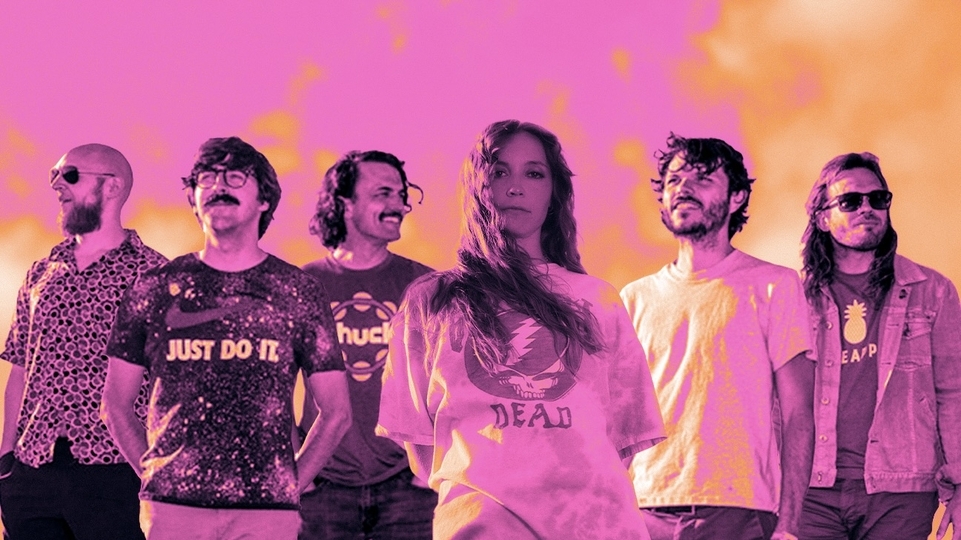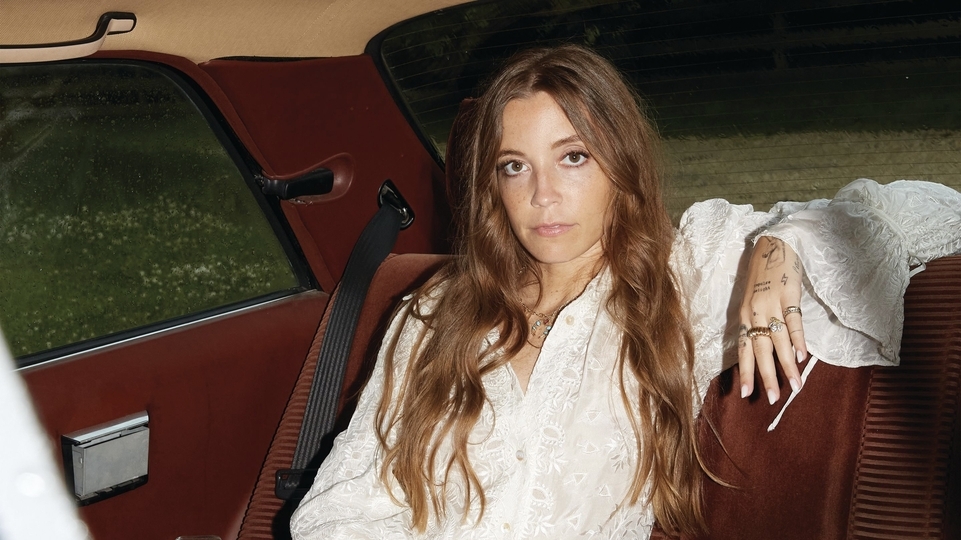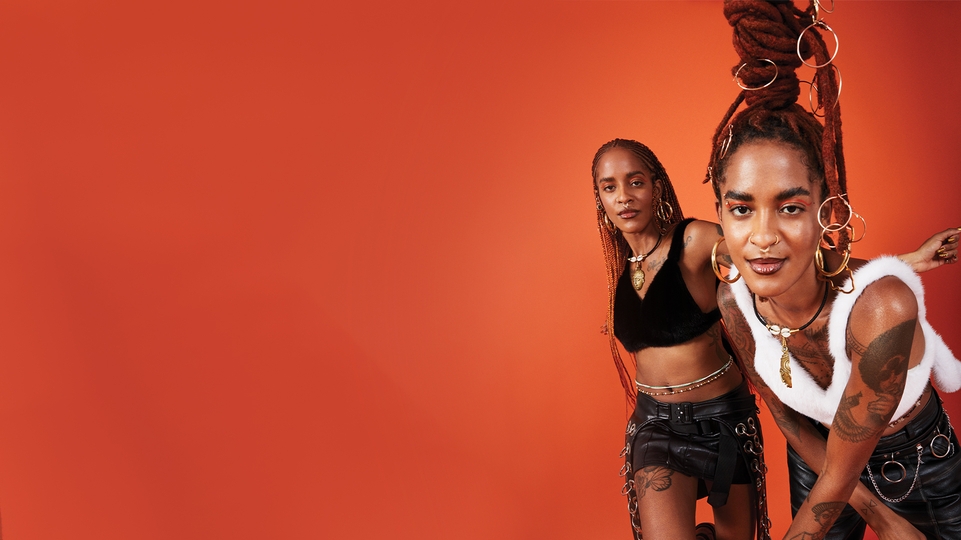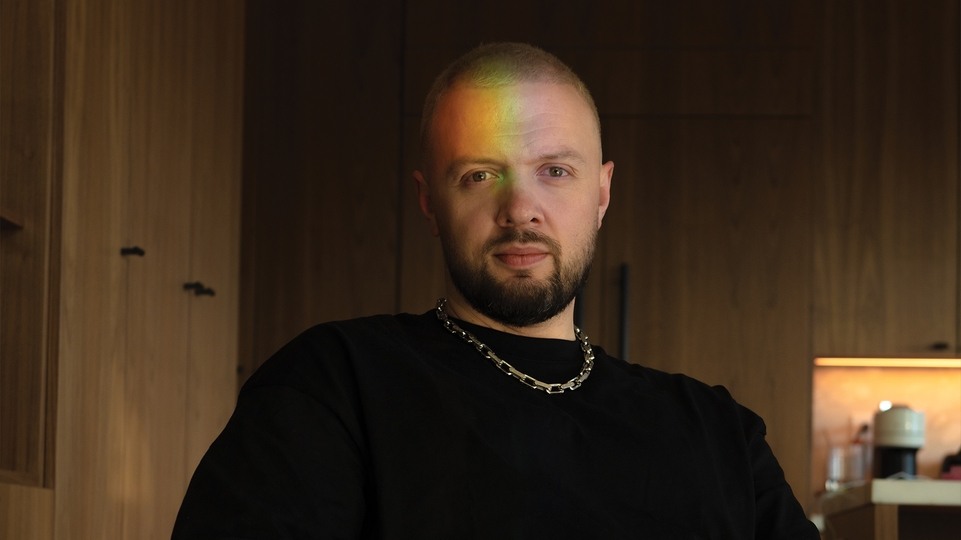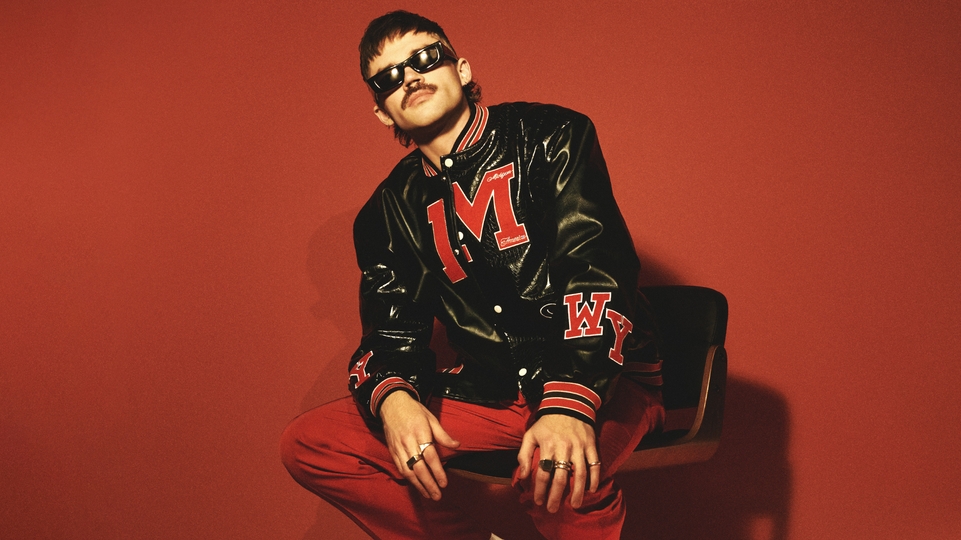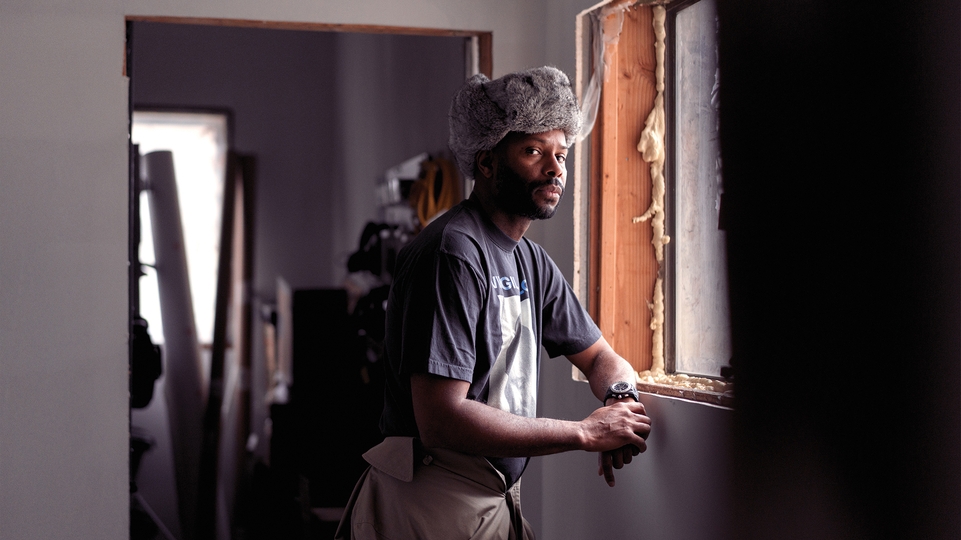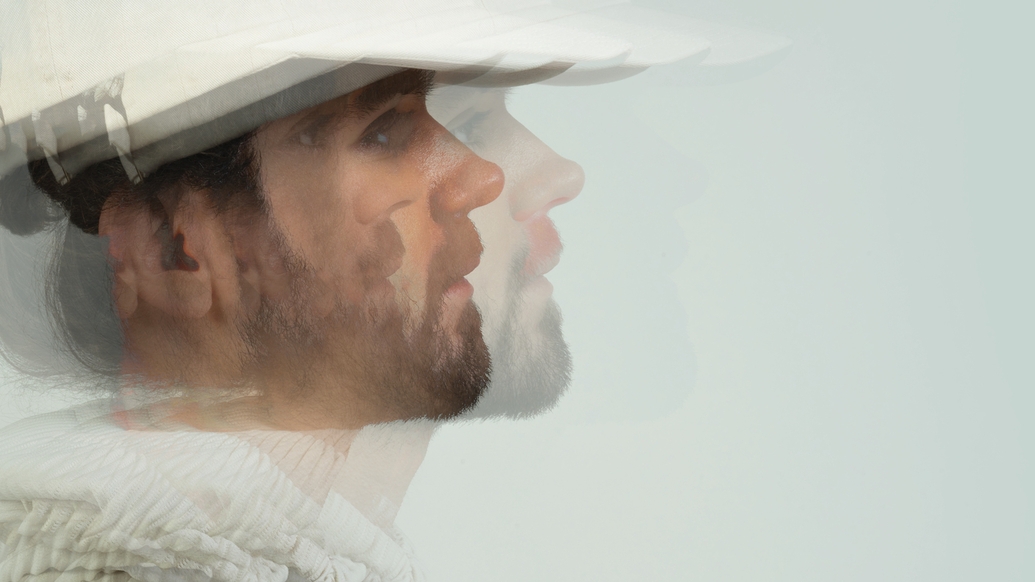
Madeon: Splendid Isolation
DJ Mag visits French producer Madeon in his LA home to learn about his meticulous process, and why he’s happiest when he’s working
Standing in Madeon’s living room, it feels like his entire home is floating. The Hollywood Hills house is located at the top of a steep drive up from Los Angeles’ storied 101 Freeway, which rushes by far below. Built on an incline, its vertical architecture means at least a few steps up or down to get from room to room. The vast views are of hill after hill flanking the freeway, with houses tucked into them at intervals, and just beyond that is Universal Studios, with the spires of Hogwarts Castle acting as sentry. This home itself is not unlike a tower — an isolation tower, to be exact.
Madeon is in the process of buying this property, in which he has worked since early 2018. It will be the latest addition to the 25-year-old’s real estate portfolio, a far cry from his parents’ home in Nantes, France, where he continued to live during the frenzy created from his first single, the YouTube sensation ‘Pop Culture’. He was there during the campaign for his debut artist album, ‘Adventure’, his powerhouse single with Porter Robinson, ‘Shelter’, and its hugely successful ensuing tour. He paused in Los Angeles at the end of that tour, and never left.
“I’m a recluse,” he says, as he retreats to a sofa. “I don’t leave the house, pretty much ever, I work all the time,” he says. “I like the idea of feeling close to the action without having to engage in it. I use the analogy of when you’re a child and your parents are having a party downstairs and you’re in your bedroom falling asleep, hearing them having fun in the distance. It’s soothing. That’s what it feels like here. I don’t feel lonely, even though I’m alone.”
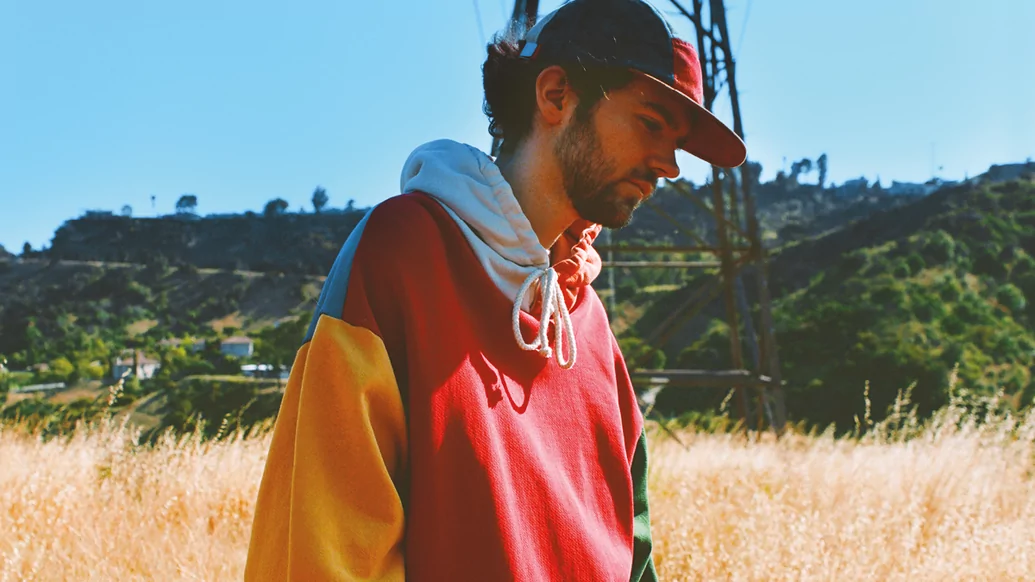

This house is Madeon HQ. His well-designed kitchen is only used for coffee and filtered water, and to open the meals he has delivered twice a day. Food doesn’t interest him. The spaces in the house are centers for creation. His studio is here. He’s putting together both the music and the visual components for his upcoming album, ‘Good Faith’, and his pending tour here. The circular wall in the middle of his living room is covered with countless printouts of ‘Good Faith’ graphics, starting as far back as late 2015. You can see a sampling of these on the ‘All My Friends Vinyl Hunt’ video on Madeon’s YouTube channel. There are more printouts on other walls in other rooms, with the intention of immersing himself in ‘Good Faith’ 24/7.
“I live in a mood board,” he says. “Los Angeles is a vibe. It feels fascinating and exotic. Because I’m European and I’ve mostly seen it through movies, it is unlike any other fiction place from art. Living in it feels like living in a theme park. Those roads, iconic sites, that sound, that sunset, all of that reminds me of things that inspire me. Los Angeles had the flavor I wanted to capture. My location helped me stay focused and not move to a different target.”
SENSE OF PERMANENCE
‘Good Faith’ was partially made in Nantes, New York, Los Angeles, and at the breathtaking Ocean Sound Recordings in Alesun, Norway. It was in these four cities that Madeon hid vinyl copies of ‘Good Faith’’s first single, ‘All My Friends’, when it premiered. Hidden messages, and objects that make up a secret universe, are a staple of his output. It’s an element of his work that his fans count on, and put a marked effort into uncovering and collecting.
“Anything I can do to make my work have a sense of permanence is something I want to try,” Madeon says. “I like spontaneity, random mixtapes that pop up and you listen to for a week, but I like to have some pillars in my career that feel like they’re worth revisiting. Something substantial enough, and not solely opportunistic, that makes it a project that’s worth being a fan of.”
“I’ve been slowly trying to force myself to tell a little bit more of the truth.”
Madeon speaks super-fast. He doesn’t search for words, yet he doesn’t like divulging too much, either. He wants to control the flow of information about the project, peeling back its layers on his own timetable, according to his master plan. The one thing that he keeps coming back to is that “‘Good Faith’ is about celebrating the joy that you’ve earned, that you’ve reclaimed.” This seems like an innocuous description for the project, or “era,” as Madeon likes to refer to the timeframe for his albums and their accompanying artwork, videos, tour, visuals, and merchandise, all of which are meant to be consumed together. “I wish there was a synonym that was less pretentious,” he acknowledges. The key terms here, although they may not seem like it initially, are “earned” and “reclaimed.” Madeon lost his joy for a while.
In 2018, he was largely inactive on social media. To all intents and purposes, he disappeared from the public eye. The presumption is that he was working on the next album. The reality is that he was taking some time for himself. At the time of DJ Mag’s first cover story on him in April 2015, he admits that “I was editing Madeon to something quite anonymous, tame and wholesome. But I had some pretty massive hardships along the way. The real story of it is much more complex and difficult than what I portrayed.
“I’ve been slowly trying to force myself to tell a little bit more of the truth, because this album, particularly, has been informed by it a lot. My personal experience is mental health related. That particular journey has been a journey of a lifetime, but also one of the driving inspirations behind the whole project. I’ve been so careful about how I present it, and what I want to say about it, because of the stigma and privacy. I’m trying to find the right amount of how to frame truth and what I want to guard for myself. I’m trying to find the avenues, ways, and vocabulary to articulate some of that experience in a way that’s helpful to people, and to contextualize the work that I’m making. I haven’t found it yet.”
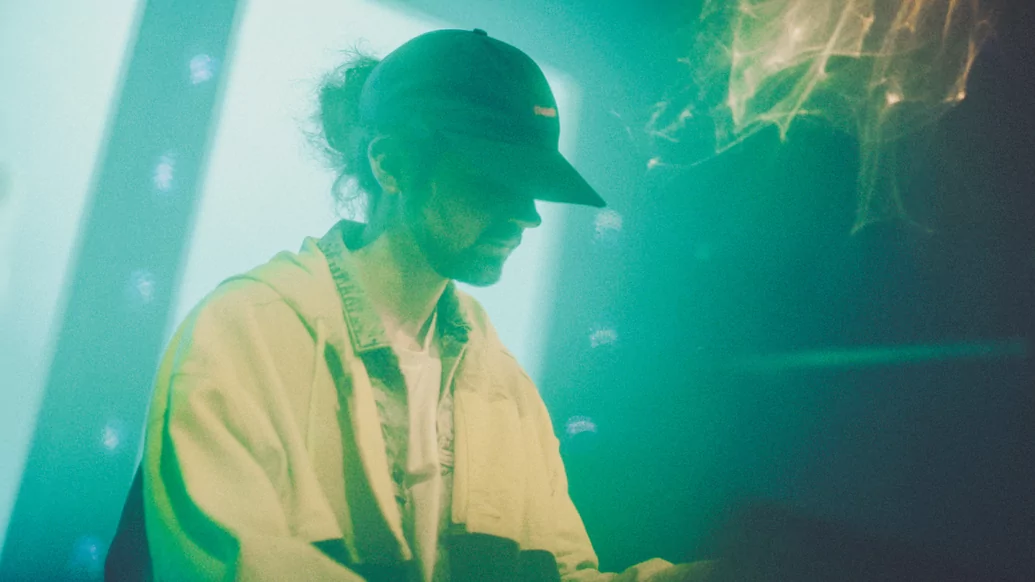

This is not the first instance of Madeon hitting a mental health roadblock. While he is taking into consideration the help it might provide for others who are suffering, he is not volunteering to educate the public on his journey. “I don’t want this album to be covered in a cloud of gloom,” he says. “The album is after the storm, it’s not about the storm. Some of the songs I had before the darkness, and when I came out of it, I rewrote the lyrics. Before, that song meant nothing, but now I know what it’s supposed to say. It makes sense. I want to make albums to chronicle eras of my life. This is a substantial era. Something I battled, that I won, that led me here, and to understanding myself more. It’s a personal victory, which is why it feels so much more profound than ‘Adventure’.”
ISOLATED
‘Good Faith’ is a collection of dichotomies. Madeon says the second single, ‘Dream Dream Dream’, is the best song he’s ever written, while making the album has been excruciating — at times, the lowest point of his life. The lead single is called ‘All My Friends’, yet in all the imagery, he is alone. There is an isolation in his stance and a desolation in his surroundings. Part of the move to Los Angeles is that Madeon left the love and support of his family, which includes an older brother and sister, niece and nephew, and his close childhood friends, far away. He has had some visits from Nantes, but his parents have yet to make it here. The plan is to host a Madeon Christmas in California.
He traded that for becoming Madeon full-time, in Los Angeles. One of the upsides of that is, if he has an idea for a video or a choir he wants to put on a track, such as ‘Dream Dream Dream’, he can summon up that talent in an email or two. He met one-half of his idol duo, Daft Punk, at a Grammys after-party. He reached out to his other musical inspiration, Paul McCartney, to see if he would play bass on ‘Good Faith’. He didn’t do it in the end, but that was just a scheduling issue. Madeon has stepped into Los Angeles studios with high-profile artists. It’s something he’s used to, having produced Lady Gaga and Coldplay in his teens, though he can’t divulge who he's been working with because the music hasn’t been released yet. He got himself a Beats 1 radio show, where he can showcase his wide-ranging taste in music and share fan creations. There is no place for a personal life — which he doesn’t want right now anyway.
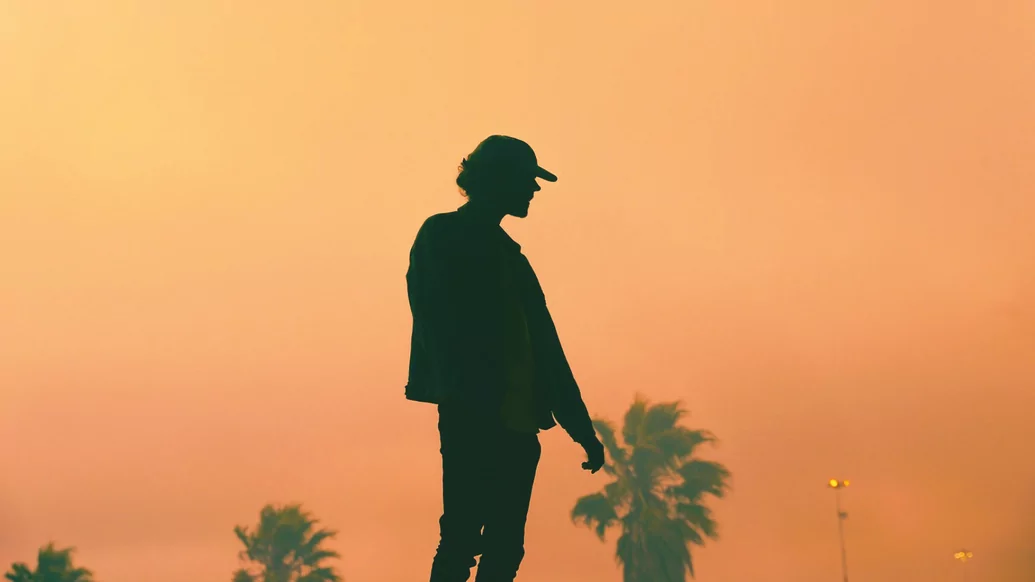

“When you’re obsessed with a vision, it’s impossible for your life to revolve around anything else.”
“I understand that the way I’m living my life is unusual,” he says. “I know the blind spots I have. I’ll probably never drive. I may never cook. There are little oddities that remind me that my trajectory is unusual. That just means there are certain things you don’t really have time to invest yourself in. You have to delay them. There are sacrifices along the way. I am at peace with it. I’m not looking to find a balance right now. The busy weeks, where every day is another crazy thing, and every day is a different challenge, are my favourite.
“When you’re obsessed with a vision, something you’re trying to execute,” he continues, “it’s impossible for your life to revolve around anything else. I want to make sure I see this through. After it is over, it will leave a big space for other things. There are a lot of creative things I want to do, but I have to remember, ‘what do I need to make sure I do in my 20s, and what can I do anytime?’ I’m just trying to organize and schedule these things so I do them in an order that makes sense. I want to make them coincide with who I’ll be, that the life I build over the coming years is built on pillars of undemanding love and safety.”
Madeon’s intelligence has been labeled as “terrifying” by some of his peers, but he’s worried about stagnating. He used to try to graph his sharpness from day to day, to determine a trend of progressing or regressing, trying to come up with a way to measure it. He may not draw it out these days, but he still takes a mental tally of whether he’s having a foggy day or an articulate day. Instead of beating himself up about the less sharp days, he just decides to give himself less brain strenuous tasks on those days. And being Madeon, he tries to monitor his triggers as much as he can.
There is a very different climate in the creative world now, compared to when Madeon last released music or performed live. There was the start of the #metoo movement, which he’s relieved about. “I always hated the macho culture that I used to see on tour,” he says. “I’m not a very frat bro person. I felt like sometimes there was an attitude towards women in touring that I wasn’t that comfortable with, that I thought was kind of wack. I’m glad it’s not mandatory anymore.”
There is also a strong sense of bringing historically underrepresented groups to the fore, which is met with hopefulness on his part. “When I started,” Madeon says, “I felt very legitimate because all the people [I saw] that were music producers looked like me. It made me feel welcome. I didn’t think of it [at the time], but subconsciously, it felt like a possible future in a way that it might not have for somebody who didn’t [look like me]. Looking like somebody can be quite trivial, but when you’re young and impressionable, and are imagining potential futures, it could be difficult to realise that you can have a place.
“I see more varied things than I used to. It feels like a less narrow cultural landscape than it was,” he continues. “A lot of themes are easier to express. I find it refreshing. There is a little bit of white knighting going on, people trying to perform their open-mindedness in a way that’s insincere and awkward. There are moments in any cultural transition that are unpleasant and extreme. It’s like your teenage years, when you’re finding yourself and you’re not fully formed. But I’m very on board with the evolution of society. It’s leading somewhere. I think eventually the floodgates will open and all scenes will be naturally diverse.”
Madeon is trying to generate all that diversity on his own for ‘Good Faith’. There are no collaborations or features on the album; a few musicians who’ve recorded instruments here and there, but he is the primary voice on songs, giving the album have a personal touch. He’s produced, mixed, and mastered every track himself.
“You can only have one person hold the vision,” he says. “All of my efforts are in making Madeon as true and as sincere as I can possibly be. If you want to be truthful, you have to be the one that takes ownership of that destination, and makes sure everything is working. Your album is your own space. It’s where you get to be uncompromising and showcase what you’re about. You invite people along the way, but they have to leave. That place you’re trying to create and share is yours alone.”
The mood on ‘Good Faith’ is more pop than ever before, with a touch of indie rock filtered through a dance lens. As Madeon says, it’s an album to be listened to in the daytime, with sunshine, perhaps while driving. The five songs he has ready at the time of this interview are bright and breezy. They’ll be restructured for the live show to give them a dance bent, and a tinge of darkness that is more visceral and better suited to the night time concert experience. Madeon will be centre stage, wielding a microphone and throwing shapes, with his instruments set up on either side of him. The show features songs from both albums, with the ones from ‘Adventure’ being reworked into ‘Good Faith’ versions.
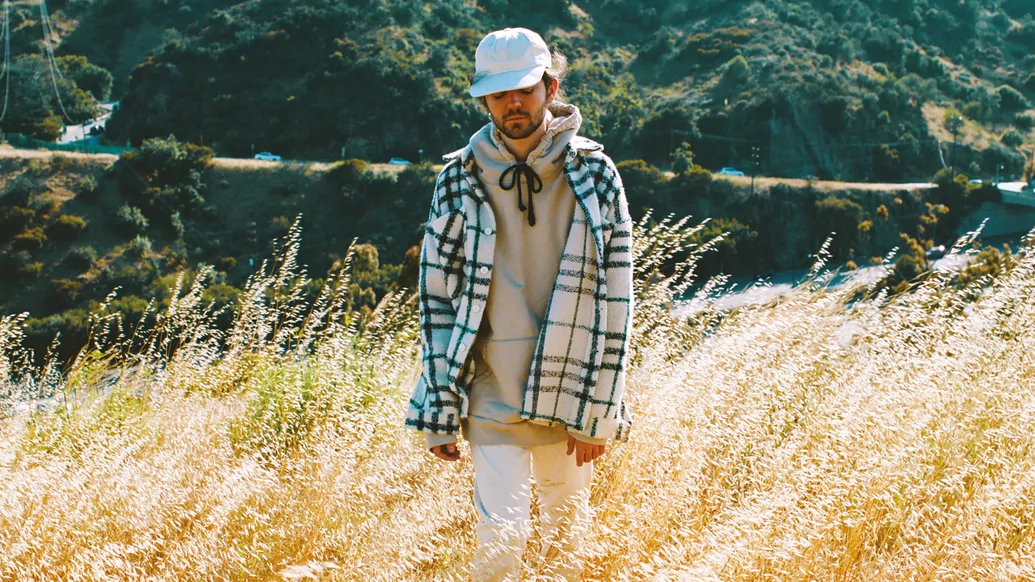

MAGIC
Madeon hasn’t released any solo music since 2015, and ‘Shelter’ was released in 2016. His last live show was when he performed with Porter Robinson at Coachella 2017. He had an unannounced set last New Year’s Eve, and he DJed at Porter Robinson’s Second Sky Festival this past summer, but that’s been it. This is an eternity in music, yet his tour is selling out bigger venues than before, and multiple nights in major markets.
“I’m finding my audience stays the same age,” Madeon says. “There are a lot of people that discovered me with ‘Pop Culture’ that were way too young to go to any of the shows I’ve done so far, that can now go to shows. It blows my mind how often ‘Pop Culture’ comes up. It felt like I had a novel idea, then a bunch of people did things similar to it, and I feel like I made a contribution. I get so inspired by things people make, I feel like I have my own ideas that people can take further. What I’m doing now is not even a reaction to that. That was so long ago. I love that moment in my life, but it’s a memory. It’s not something that I’m rebelling against.”
There was a time when Madeon was his own video tech. Arriving at a venue, he would set up his video content for the live show by installing a laptop, making all the connections, testing it, then returning to his tour bus. These days, he has The Architects, who are given credit on everything related to ‘Good Faith’. This is an ambiguous term Madeon is using, referring to the collective of creatives who help him realize his various visions. Like ‘Good Faith’, more layers to this group of talent will be revealed as the era unfolds.
Lollapalooza is the preview for ‘Good Faith’ Live and it has forced Madeon to stop mixing and mastering the remaining tracks on the album in order to put together the live show, which he is doing all day every day leading up to the festival. This is throwing his schedule right off. Plus, he decided to conceptualize, direct, edit, and do the VFX for the video for ‘All My Friends’, the post-production of which took four, 15-hour days in a row to do. There is a French language calendar created by taped-off sections on the high-ceilinged wall behind Madeon’s head. It takes up most of the wall, but it is alarmingly empty.
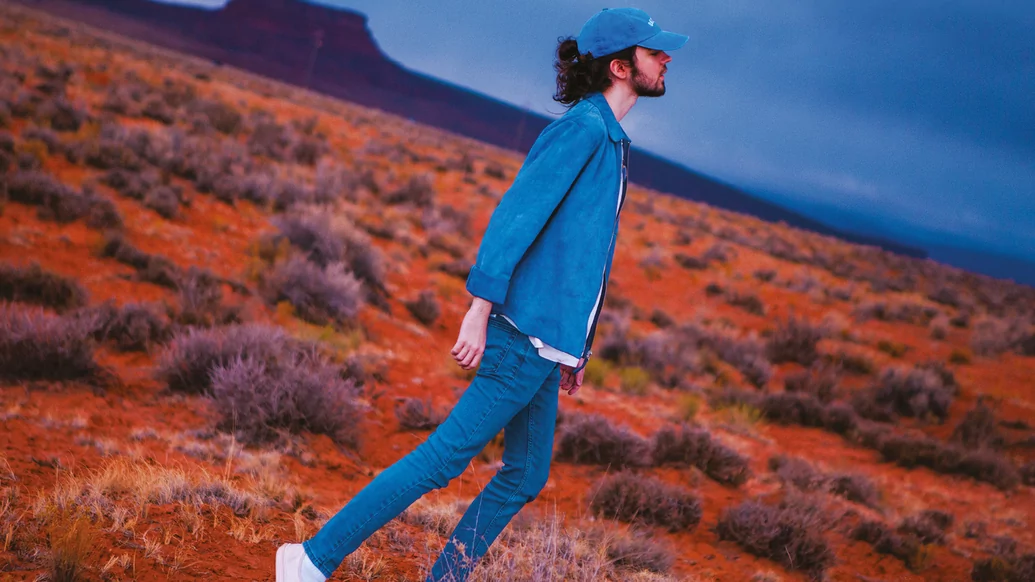

“It used to be filled with deadlines,” he says, without looking at the blank calendar. “There are still deadlines, but it became a little overwhelming every morning, sitting with my coffee, looking at all the work I had to do. I like to be involved in everything because it’s fun, but sometimes I forget how much it adds up. It started getting stressful seeing it on the wall. I realize that it’s better going through the challenges day-to-day as they emerge.”
Madeon is at full throttle, all the time. There is a Lego mansion and a few other elaborate constructions on tables in his living room. He made these himself when he had a severe cold and was restricted to his bed — the only time he doesn’t feel guilty about not working. Doing things with his hands is something that he gets genuinely excited about. Lego, Nintendo Labo, and most of all, magic tricks. He works hard at perfecting his card tricks, and has attended Los Angeles’ magician haven, The Magic Castle, a few times. He even bought a tuxedo because of the venue’s formal dress code. He will be scheduling his audition at The Magic Castle in order to become a fully fledged magician after ‘Good Faith’ Live is completed.
“I certainly cannot control everything,” he says, “but I can control a lot of Madeon. So that’s what I do. It’s a safe space.”
